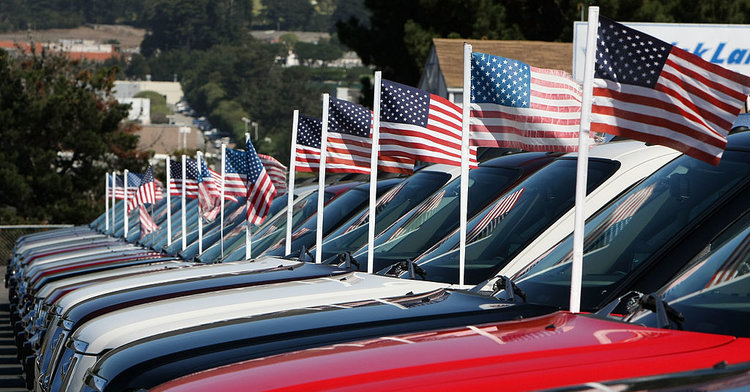
Are Car Commercials Fueling Reckless Driving on the Road?
Should automakers change their advertising? Have too many drivers ignored warnings in commercials while attempting to recreate the fun of the car commercials.
Vehicles are supposed to be safer than ever before, but traffic deaths are on the rise. Since 2012, these deaths have risen by 27% to reach a total of nearly 43,000 people in 2021. Many traffic deaths are caused by speeding, which spurns many conversations regarding vehicles and how they’re portrayed. Should automakers change their advertising to show vehicles but avoid presenting them as exciting and fun? It might be time for a new way to present new vehicles to the public.
Is it a generational thing?
Younger generations will immediately feel offended when anything is suggested as a “generational thing,” but we live in a world with more warnings and labels than ever before. Moreso than a generational topic, these warnings are a legal issue. The fine print presented at the end of contracts is as much of a challenge as warnings in commercials; nobody reads the fine print or heeds the warnings. Those who do are more informed than the masses, but most people don’t pay attention to the fine print, and that’s by design.
Are car commercials to blame for reckless driving
Many car commercials present vehicles as exciting, fun, and capable of unbelievable feats. The warning is there, “professional driver on a closed course,” but that warning isn’t heeded by those looking to push the boundaries of some vehicles. In fact, some people have tried to prove that cars can or can’t do what’s presented in commercials but forget the warning because they aren’t professional drivers or on a closed course. This creates a dangerous situation for other drivers and could be part of why deaths on roadways have risen so much in the past ten years.
The culture of speeding on public roads
Speeding on roadways can cause dangerous situations and kill people. Automakers may need to change their advertising approach and create new commercials without speeding or pushing boundaries. Jennifer Homendy, Chairperson of the NTSB, said in a statement to NBC News:
“Nearly one-third of our roadway deaths are speeding related, and this sort of advertising is dangerous and contributes to a culture of speeding that costs lives. Everyone – including vehicle manufacturers – shares in the responsibility for safety on our roads.”
If there’s a link between increased car crashes and advertising, it could be time for car commercials to present things differently instead of showing dangerous driving habits.
The crash that created the conversation
In 2022, a car driving at more than 100 mph hit a Toyota Sienna carrying seven people. This occurred on a road with a posted speed limit of 35 mph, and the driver of the car had a history of speed and was impaired by cocaine and PCP. The crash killed nine people, including four children in the minivan. This crash is what the NTSB is pointing at when suggesting various ways to slow cars down, including advertising changes.
Do video games kill kids, or should parents be more vigilant?
Th latest generation is deeply immersed in the electronic world. It’s still parents who are responsible for ensuring kids don’t get so immersed in this world that they think it’s reality. Many video games depict war scenarios with gruesome shootings and killings, but are these video games responsible for the deaths of kids who can’t distinguish reality from fantasy, or should parents be more vigilant, limit gameplay, and remind kids that the online world isn’t reality?
The same logic can be applied to automotive advertising and the scenarios shown in car commercials.
If cars are safer, why are automotive deaths on the rise
Although the NTSB suggests speed limiters in all new vehicles, a change to automotive advertising, and other measures to slow cars down, shouldn’t we explore other reasons why automotive deaths have risen? Can we point to social media influences, added electronic distractions, and a false sense of security as more concrete reasons for increased vehicular deaths?
What happens if your smartphone is no longer in your vehicle? What if you had to use a paper map and memorize a route instead of relying on GPS to tell you where to turn? Could social media platforms censor potentially harmful content from being shared on platforms?
Although automakers might need to adjust their advertising and make more mundane car commercials, people, in general, need to take accountability and responsibility for their own actions as well. Stop blaming external influences and understand the clear differences between right and wrong while also applying some good old common sense, please.
This post may contain affiliate links. Meaning a commission is given should you decide to make a purchase through these links, at no cost to you. All products shown are researched and tested to give an accurate review for you.



